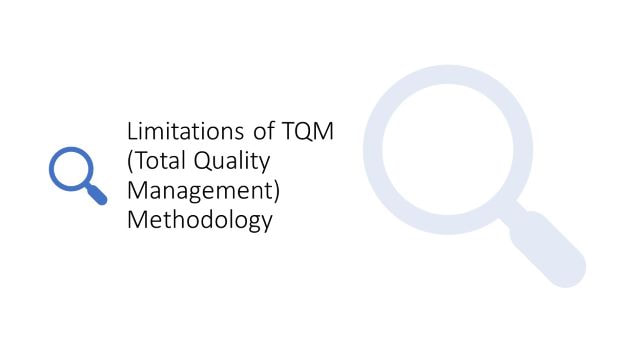The primary reason that Total Quality Management can be hard to implement is due to resistance from employees. It is natural that those who are comfortable with the way of things can view change as a frightening, or stressful, thing. Implementing TQM often has the effect of making employees feel as though their position is at risk, which can cause them to refrain from making the necessary changes or to do so at a much slower pace than what is desirable.
Those that are great at their current position may even have these feelings since they are not sure where they stand in the company anymore and if they are still required in the company’s new direction. Employees that take too long, or have major resistance to these changes, can end up making the process cost and time defective. The introduction fees can end up costing a lot since it requires employee training. Also, while the employees are being trained there may be a halt, or decrease, of work productivity.
Since the training required is very intensive and detailed, with details such as problem solving methods, ways of evaluation, diagrams, techniques for brainstorming and so on, the training period can cause a company to come to a major slow down or stand still. The end results outweigh this time spent, by reducing waste and increasing productivity. However, it is necessary to consider that productivity during training may decline significantly. This technique requires all members of staff to participate.
It costs money to properly implement TQM technique. Some companies have found that it took them a few years for the program to function at its best or to even see the beneficial results. This can be very discerning for companies and its employees and can add to stress, especially during times of economic crisis. This technique is best viewed at as a long-term investment, that surely brings a positive change, only corporate decision makers have to take a patient approach during TQM implementation to motivate the work teams.





















